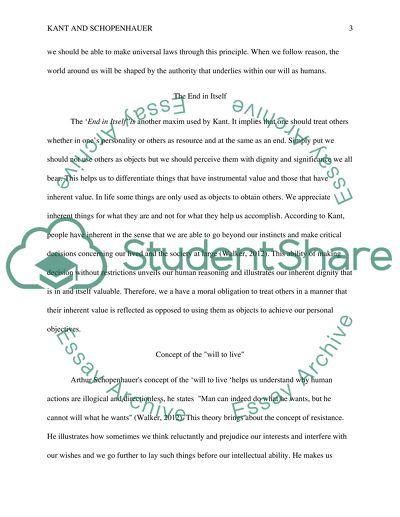Kant and Schopenhauer Essay Example | Topics and Well Written Essays - 500 words. Retrieved from https://studentshare.org/philosophy/1688847-kant-and-schopenhauer
Kant and Schopenhauer Essay Example | Topics and Well Written Essays - 500 Words. https://studentshare.org/philosophy/1688847-kant-and-schopenhauer.


